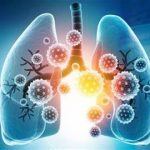The future prospects of cell
and gene therapy

Respiratory Disease
Role of Cell and Gene Therapy in Respiratory Disease
- Cystic Fibrosis (CF)
- Gene Therapy:
- CFTR Gene Delivery: CF is caused by mutations in the CFTR gene, leading to defective chloride ion transport and mucus buildup in the lungs. Gene therapy aims to deliver a functional CFTR gene to airway epithelial cells using viral vectors such as adeno-associated virus (AAV) or lentivirus. Clinical trials have shown that this approach can improve lung function and reduce respiratory infections.
- mRNA Therapy: Another approach involves delivering mRNA encoding the CFTR protein to lung cells, enabling transient but functional protein production. Early clinical trials have shown promise in improving respiratory symptoms in CF patients.
- Gene Therapy:
- Cell Therapy: Transplanting airway basal stem cells, which can differentiate into various lung cell types, has the potential to repair damaged lung tissue and restore normal function. Research is ongoing to optimize this approach for CF treatment.
- Chronic Obstructive Pulmonary Disease (COPD)
- Gene Therapy: Gene therapy can deliver genes encoding anti-inflammatory cytokines, such as IL-10, to reduce chronic inflammation in COPD patients. This approach aims to alleviate symptoms and slow disease progression.
- Cell Therapy: Mesenchymal Stem Cells (MSCs) have anti-inflammatory and immunomodulatory properties that can help reduce inflammation and promote tissue repair in COPD patients. Clinical trials have reported improvements in lung function and quality of life following MSC therapy.
- Pulmonary Hypertension (PH)
- Gene Therapy: Gene therapy can deliver genes encoding vasodilators, such as endothelial nitric oxide synthase (eNOS), to the pulmonary arteries to reduce hypertension and improve blood flow. Preclinical studies have shown promising results, with ongoing clinical trials to evaluate safety and efficacy.
- Cell Therapy: Endothelial Progenitor Cells (EPCs) can promote the repair and regeneration of damaged blood vessels in the lungs. Transplanting these cells into PH patients can improve vascular function and reduce pulmonary pressures.
- Asthma
- Gene Therapy: Gene therapy approaches for asthma focus on delivering genes that encode anti-inflammatory cytokines or modulate immune responses to allergens. This can help reduce airway inflammation and hypersensitivity, potentially leading to better asthma control.
- Cell Therapy: Tregs play a critical role in maintaining immune tolerance. Infusing Tregs into asthma patients can help modulate the immune response and reduce allergic reactions, leading to improved asthma management.
- Idiopathic Pulmonary Fibrosis (IPF)
- Gene Therapy: Gene therapy can deliver genes that encode antifibrotic proteins, such as decorin, to the lungs to inhibit fibrosis and promote tissue repair. Early-phase clinical trials are investigating the potential of this approach to slow disease progression and improve lung function in IPF patients.
- Cell Therapy: Fibroblast-Derived Stem Cells can differentiate into lung epithelial cells and promote tissue regeneration. Research is ongoing to evaluate the safety and efficacy of fibroblast-derived stem cell therapy for IPF.
